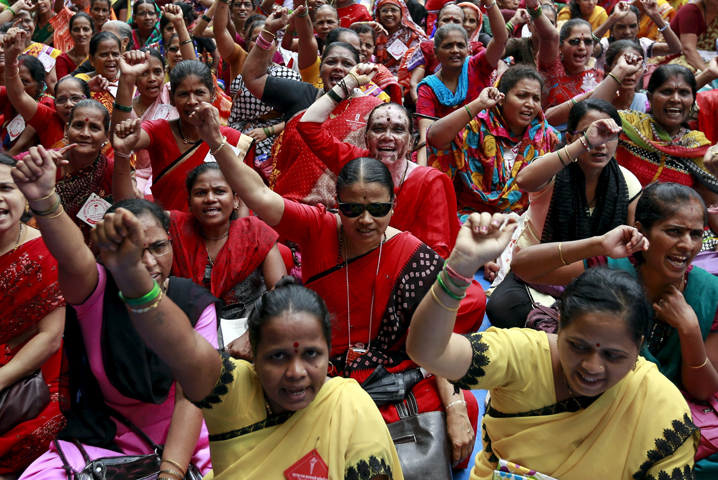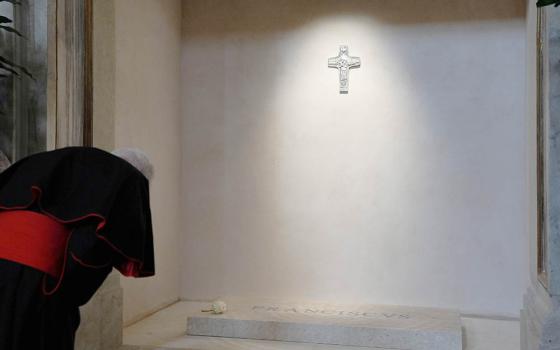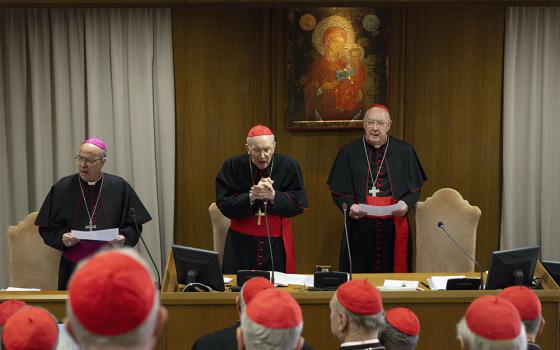
Workers from various trade unions shout slogans during an anti-government protest rally, organized as part of a nationwide strike, in Mumbai, India, Sept. 2. (CNS/Danish Siddiqui, Reuters)
The Catholic Church in India supported some 150 million workers on a nationwide strike that shut down factories, banks, traffic and government offices across India Sept. 2.
Workers across India are upset about labor policies of the government that they say are detrimental to the welfare of workers, said Bishop Oswald Lewis of Jaipur, head of the Indian bishops' labor office.
"The church is in solidarity with striking workers because we are concerned about their welfare," the bishop told ucanews.com, adding that all Catholic forums in the country are supporting the strike.
A national network of 10 leading trade unions, including those in the banking, manufacturing, construction and coal mining sectors, organized the 24-hour strike, saying that their two rounds of talks with the federal government had failed to elicit a favorable response to their demands.
Their demands range from an enforcement of basic labor laws and universal social security coverage for workers to measures to contain rising prices and unemployment.
Media reported that the strike hit transport and banking operations across the country and that in some parts workers blocked highways and stopped trains. Many schools and colleges as well as factories, government offices and commercial outlets remained closed.
Lewis said the government of Prime Minister Narendra Modi has been following a development principle "based on private-public-partnership, which actually proved to be benefiting industrialists."
"That is what we have seen in Gujarat," said the bishop, referring to Modi's tenure as chief minister of the western Indian state for some 15 years, before he became prime minister in May 2014.
"We believe policy changes should be done after wider consultation with all stakeholders, including workers. But we don't see such consultation in the policy making of this government. That is a concern," Lewis said.


